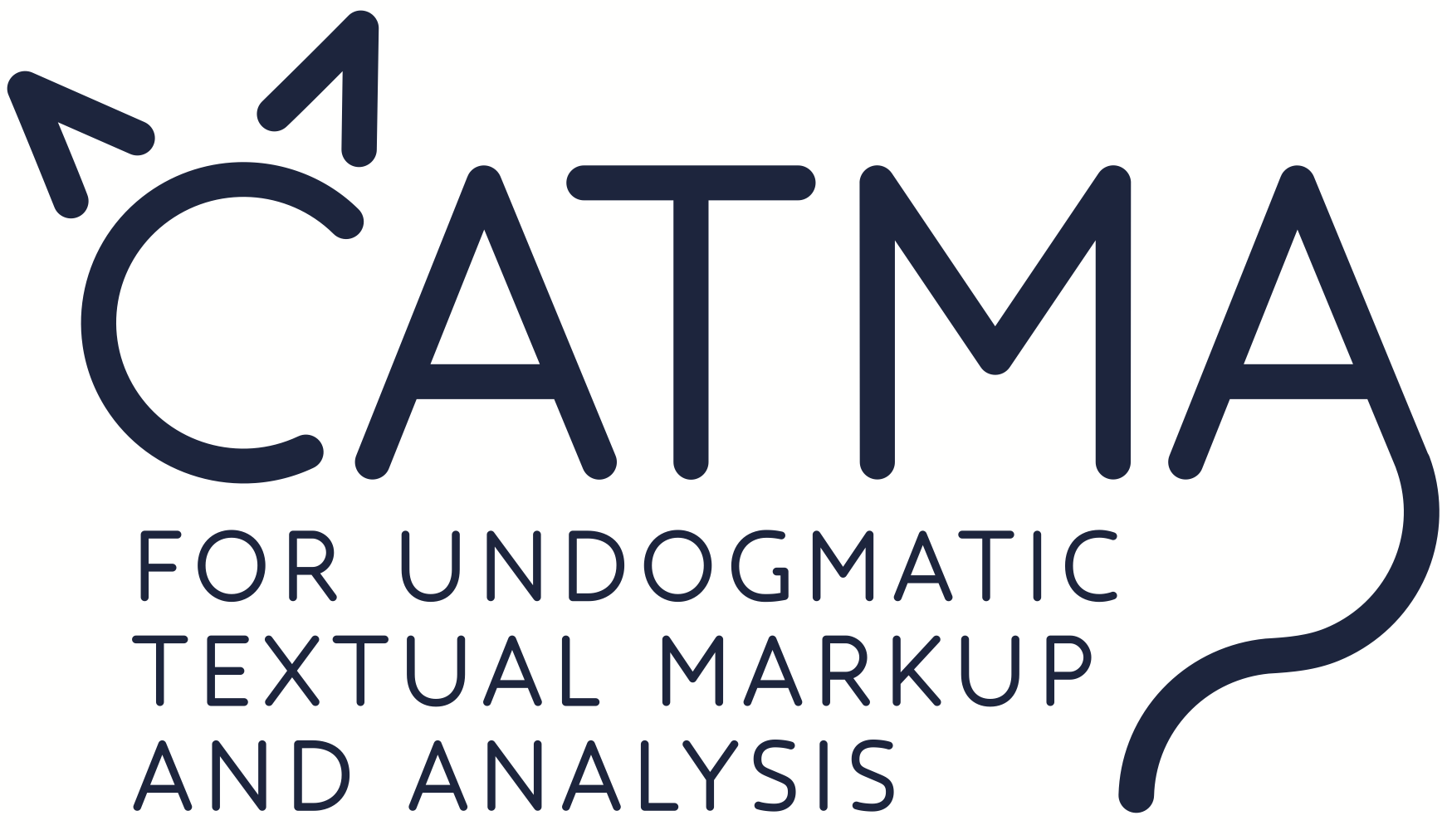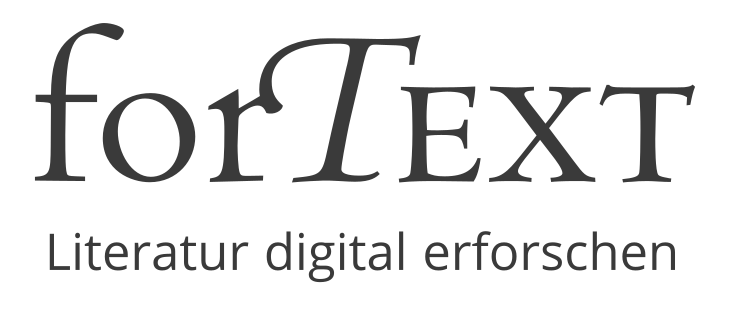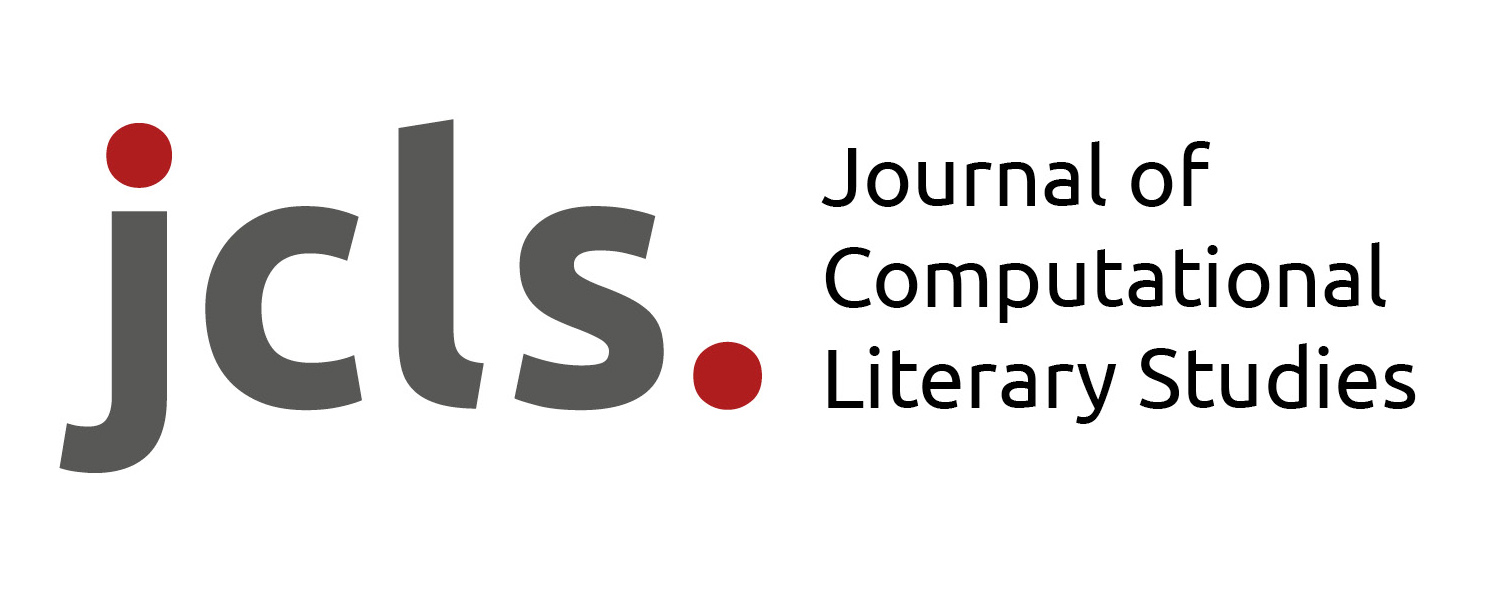Research Projects
d-Prose
The corpus “d-Prose 1870-1920” is a heterogeneous collection of 2511 German-language literary prose texts published between 1870 and 1920. It contains narrative texts from trivial and high literature with a minimum length of 1000 words. The corpus was created from manually and semi-automatically selected texts from the German-speaking area.
→ Corpus: d-Prose
Event
In EvENT (“Evaluating Events in Narrative Theory”) we are developing, in cooperation with the Language Technology Group at the University of Hamburg (Prof. Dr. Chris Biemann), an approach for formalizing and analyzing events and eventfulness in narratives. The approach is based on natural language processing (NLP) and narratological concepts from literary studies.
KatKit
The aim of KatKit (KATegories toolKIT) is to support humanities thinking through mathematically grounded methods in order to reduce the risk of unintended inconsistencies and inconsistent models, and to facilitate the operationalization of humanities concepts.
For the toolkit, methods of applied category theory are adapted and further developed for use in the digital humanities. The interdisciplinary approach pursued here combines thinking in the humanities, computer science and philosophy of science, whose common points of contact are structures and patterns that can be described in category theory. Ultimately, the aim is to integrate the results into existing tool chains and workflows of the Digital Humanities and to be able to use them with existing software (e.g. the annotation software CATMA).
→ More about KatKit
Konflikte
In literary studies, the concept of conflict is used in a variety of contexts. These include the analysis of conflicts between characters, the study of how epochs deal with societal conflicts, and the exploration of poetological concerns. In the fortext lab, we focus on (1) the operationalization of conflict types using a category-theoretical approach and (2) heuristics for measuring conflict e.g. through adapted methods of word embedding-based sentiment analysis.
PLANS
PLANS (“Unitizing Plot to Advance Analysis of Narrative Structure”) is a follow-up project of EvENT (“Evaluating Events in Narrative Theory”), focusing on the exploration and design of plot concepts in narrative theory. Based on linguistic and narratological approaches, we are modeling units of action that enable the exploration of narrative structures and the construction of texts.
→ More about PLANS
Szenen
“Szenen” is a joint research project with the Universities of Würzburg and Cologne, which targets the automatic detection of scenes in narrative texts. Based on our definition of scenes (Gius et al. 2019), we formulated annotation guidelines and conducted a manual scene annotation of several narrative texts of high and trivial literature. In addition, we organized a Shared Task on scene recognition in 2021, where participants were asked to develop models for automated scene segmentation.
Software
CATMA
CATMA (Computer Assisted Text Markup and Analysis) is a free to use, open source web application that supports the annotation and analysis of digitized texts. Its primary features are manual annotation, a flexible system for the development of annotation categories, a built-in query language to analyze texts and metadata, as well as interactive visualizations. CATMA data is easily accessible and exportable, which makes it particularly suitable for further processing with other tools and methods. In continual development since 2008, CATMA is widely used by a diverse audience, especially in the Digital Humanities.
GitMA
GitMA is a Python package that you can use to process, analyze and manipulate CATMA annotations via the Git Access. → See the GitHub repository and the documentation.
Publishing
forTEXT Portal
We offer theoretical and practical introductions to digital methods, resources, and tools for digital literary studies at fortext.net. We provide a variety of materials such as introductory slides, video tutorials, and detailed descriptions of methods, resources, and tools for self-study and for teaching in universities and schools. All content is freely accessible and especially designed for beginners.
forTEXT Hefte
The “forTEXT Hefte” is a German, freely-accessible, peer-reviewed online journal series. By introducing the forTEXT Hefte, the forTEXT Portal team initially publishes the content of fortext.net in thematically grouped issues. Its thus an extension of the forTEXT Portal and moreover aims to offer a plattform for the publication of contributions to reasearch and teaching in the field of DH: The journal aims to enhance the dialogue between DH teachers by providing a platform forpublishing teaching materials such as syllabi or teaching modules. The first Call for Papers 2024 on the topic of “Text annotation in university teaching” has now been published. Submissions are possible until 30.09.2024. More information about the issues: https://www.fortext-hefte.de
JCLS
The Journal of Computational Literary Studies (JCLS) is an international, open access, peer-reviewed online journal dedicated to all aspects of computational approaches to Literary Studies. The journal provides a publishing platform for work on the development, the application, and the critique of computational approaches to Literary Studies. JCLS is jointly edited by Evelyn Gius, Christof Schöch and Peer Trilcke. The fortext lab is also involved in the editorial team of JCLS.


